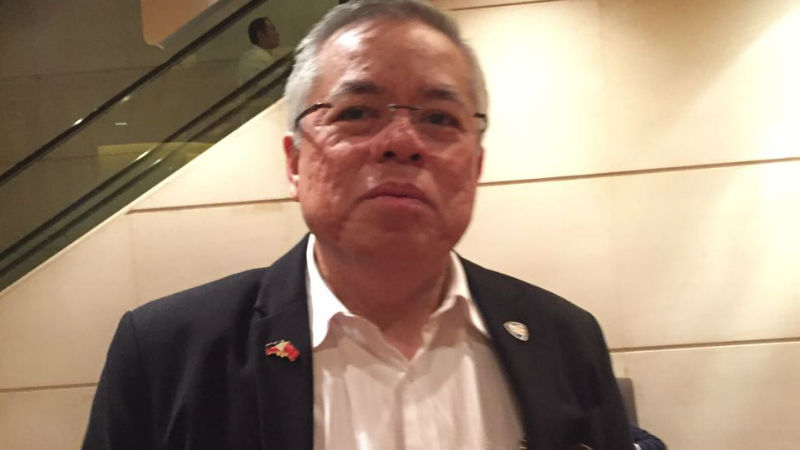BEIJING–This is what President Rodrigo Duterte’s key Cabinet members have to say:
Communications Secretary Martin Andanar: “Our economic policy will just change and the change is about opening our doors to other countries. That’s it. And we have an independent foreign policy. This means that no one interferes and no one even tells us what to do. It is going to be a foreign policy that is made in the Philippines.”
“It’s not a divorce. It’s like a father and a son…A son has to marry and move to a different house…The US was a father to us for a long time and it is but timely already for us to move out of that house and secure our own house and decide for ourselves.”
Foreign Affairs Secretary Perfecto Yasay Jr.:
“(It means) separation from the economic and defense dependence of the past.”
“There are all along the lines of making sure that we engage ourselves more vigorously in very strong economic and development cooperation, so these are the main things that we have emphasized.”
Trade Secretary Ramon Lopez:
“I will let the official spokesperson speak on behalf of the President. But what I see is a positive move towards re-strengthening ties with Asian neighbors which historically have been our economic and trading partners for centuries.
The President has been establishing good rapport with Asian leaders like the ones he recently visited such as Laos, Indonesia, Brunei and now in China. Other Asian countries are scheduled to be visited soon. The friendships regained are opening up deeper commitments in enhancing economic, trade and investment ties, reaffirming our vision of regional economic integration.
The highly successful meetings with top leaders of China, President Xi Jinping of China and Premier Li Kequiang have led to greater confidence in the future economic relationship of our two countries.
This trip resulted in several private business led agreements that summed up to US$13.5 billion of investment and financing agreements. These are covered by MOAs (memorandum of agreements) signed yesterday Oct.20 and today, Oct 21.
The $13.5 billion investments agreements would translate to an expected 2 million job generation in the next five years.
These are in the areas of industries, manufacturing, agribusiness, trade finance, hotels, telecom, tourism, transportation, ecozones, industrial parks and infrastructure projects.
The renewed friendships in this part of the world has opened huge opportunities for Philippines’ trade and investment in the China and ASEAN market of over 1.9 billion people across the region.
We will maintain relations with our other partners but we would revive the stronger integration with our neighbors. We share centuries of trading, similar culture and a better understanding with our region.
For China alone, they continue to be the Philippines’ second major trading partner with $17 billion value in total trade. Our exports to China was $6 billion in 2015 but this still has high growth potential as we establish better relations and considering China’s total imports was around $2 trillion in 2015.
Another promising area again is investment from China. Their investment to the Philippines (Investment Promotion Agency- approved) dropped to only $32 million in 2015. But China’s total outward investments was around $130 billion in 2015.
In re-establishing a region of peace in Asia, many are more optimistic in seeing trade and investment levels soar to greater heights.”
Joint Statement of Finance Secretary Carlos Dominguez and Economic Planning Secretary Ernesto Pernia
“The president just gave a very important speech. The cabinet will move strongly and swiftly towards regional economic integration. This is why the president prioritized foreign trips to ASEAN (Association of Southeast Asian Nations) and Asia. As a result, The Philippines has now opened its opportunities for trade and investment to a market of 1.8 billion people across the region. ASEAN economies have expressed interest in integration. China has committed to open its capital markets.
We will maintain relations with the west but we desire stronger integration with our neighbors. We share the culture and a better understanding with our region. This regional integration is similar to what has been done in the EU and NAFTA in North America and Mercosur (sub-regional bloc) in South America. The Philippines is integrating with ASEAN China, Japan and South Korea.
In a way, Asian economic integration is long overdue compared with the regional economic integrations.”
Compiled by Doris Dumlao-Abadilla in Beijing
